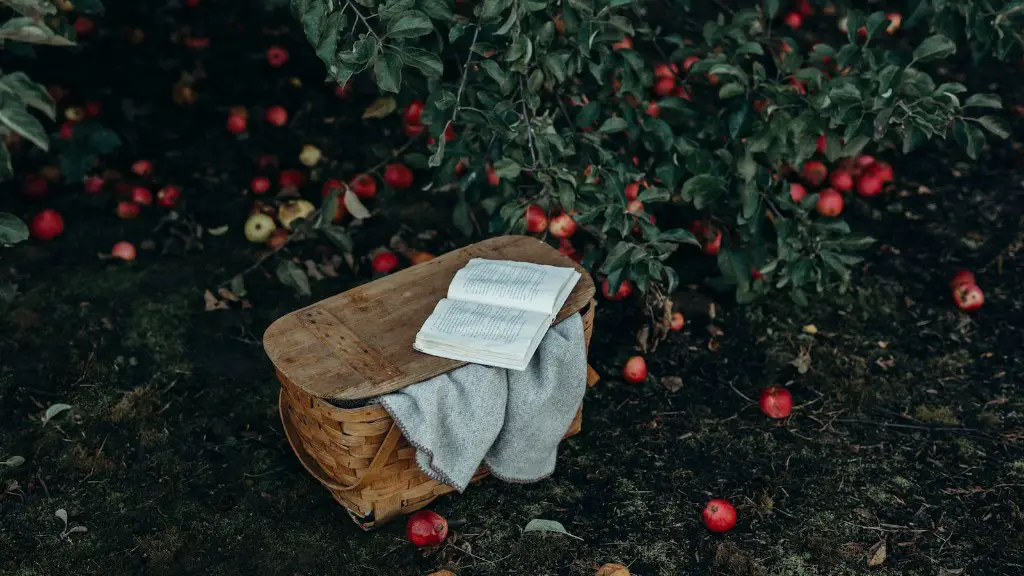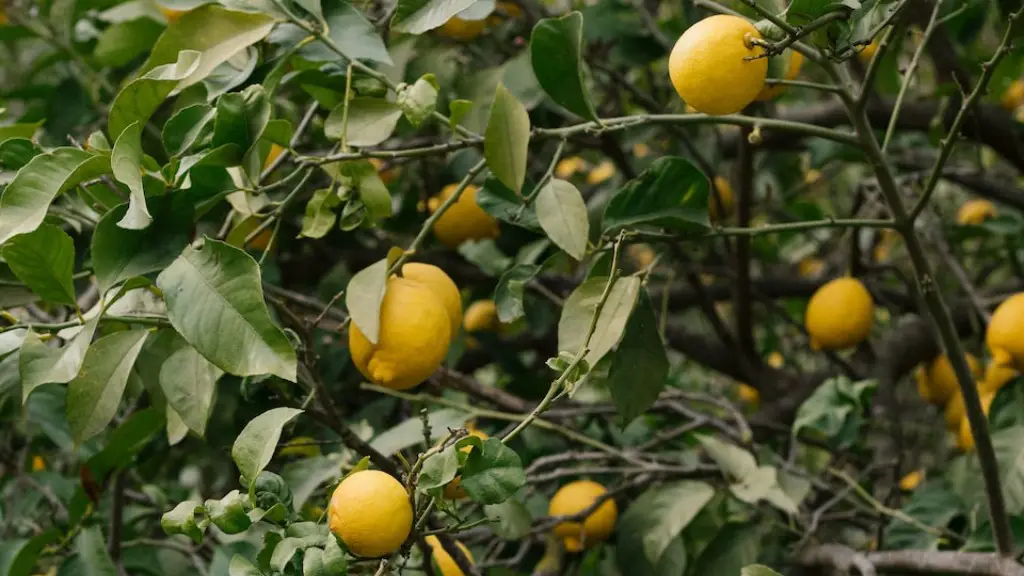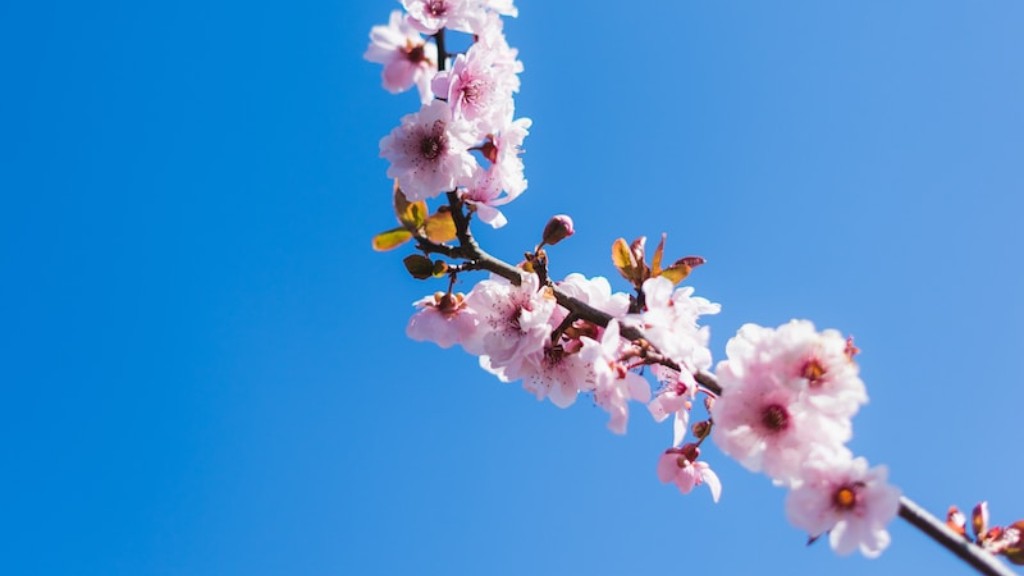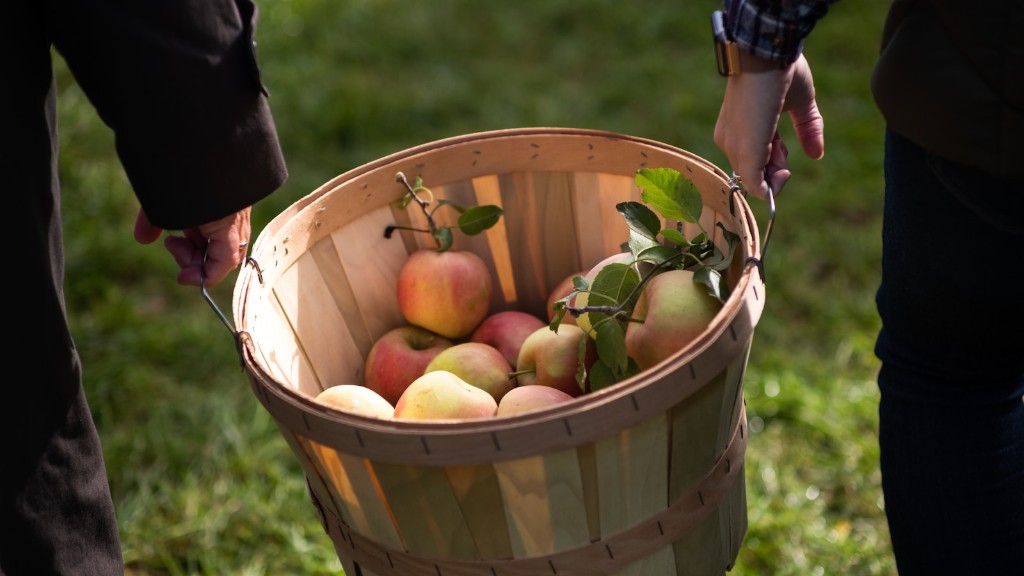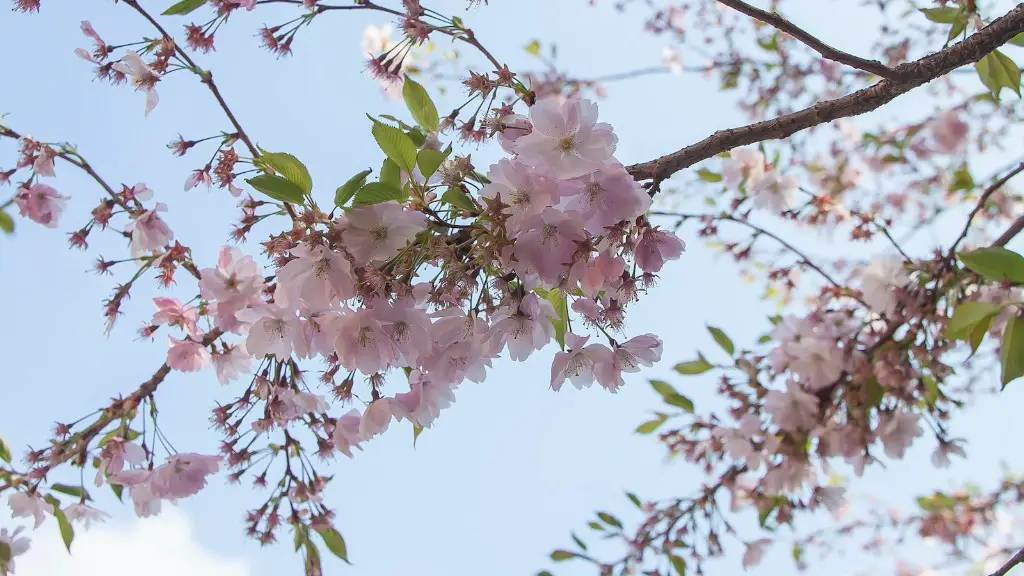It is possible to grow an apple tree from an apple seed, given the right conditions. In general, apple seeds are viable, meaning they will germinate and sprout. Apple trees grown from seeds can take between 3 to 5 years to yield meaningful yields of fruit; contrast this with a young apple tree purchased from a nursery, which will bear fruit in 2 to 3 years.
Growing an apple tree from seed requires some patience but it is a rewarding endeavor, especially for the keen gardener or grower. The process begins with soaking the seeds in un-chlorinated water for one to two days. This softens the outer shell and mitigates the dormancy of the seed, meaning the seed is more likely to germinate.
The next step is to stratify the seeds. This involves placing the soaked seeds in a damp growing medium such as damp sand, saw dust or soil and storing them in a fridge in 50-degrees Fahrenheit for about 3 months. Stratification mimics the cold temperatures of winter, which the seed would need to go through naturally.
Once stratification is complete, the seed must be placed in a sunny location with well-drained soil. Germination can take anywhere from a few weeks to several months and is aided by regular watering.
Once sprouted and established, an apple tree can be cultivated in the same way as any other fruit tree; it is important to prune it regularly, water it when needed and give it the right nutrients. With the right care and attention an apple tree grown from seed can yield delicious harvest within 3 to 5 years.
Advantages Of Growing Apple Trees From Seeds
Growing an apple tree from an apple seed has many advantages. Firstly, the cost of the seed is very affordable and the process is relatively easy and enjoyable. When compared to purchasing a young apple tree from a nursery the cost savings can be significant.
Another advantage of growing an apple tree from seed is it allows for the selection of the best quality parent tree from which to start the process. The care and attention given to the parent tree and the quality of the fruit produced is reflected in the quality of the new plants that can be grown from its seeds.
Furthermore, a successful apple-seed-grown apple tree will be better able to survive harsher conditions than a nursery-raised tree. Because fruit trees grown from seed are adapted to the location where they are grown, they will be better able to survive the environment and local pests.
Finally, since apple trees grown from seed are not cloned, like the trees purchased from nurseries, they will have greater genetic diversity which makes them more resilient to disease and produces better quality fruit.
Disadvantages Of Growing Apple Trees From Seeds
Although there are some advantages to growing an apple tree from a seed there are also some disadvantages. Firstly, it requires patience; the process from seed to fruit bearing tree can take between 3 to 5 years and this might put some people off from trying.
Secondly, there is the risk of the seed not germinating at all or germinating and not producing a healthy specimen. Although the success rate is usually quite high, there is always the possibility that the tree will not reach maturity.
Thirdly, it is difficult to determine what kind of apple tree will grow from the seed as the genetics of the parent tree aren’t known. This might mean the tree produces poor quality fruit or a variety that has little demand in the market.
Finally, apple trees have a tendency to produce larger canopies which can cast too much shade, making it difficult to grow other plants in close proximity.
Conclusion
Growing an apple tree from an apple seed can be a rewarding experience and is an option that should be considered when planning a garden. It takes patience, but with the right conditions, it can be an enjoyable and cost-effective way to grow fruit bearing trees. Furthermore, apples grown from seed can bring greater genetic diversity, hardiness and quality to the garden.
Growing Apple Trees From Cuttings
Growing apple trees from cuttings, as opposed to seeds, is an alternative option for gardeners looking for a more rapid way of adding fruit-bearing trees to the landscape. Apple tree cuttings are usually taken from mature trees during the dormant season and will produce a clone of the parent tree.
Cutting propagation is relatively easy to perform and the cuttings require little maintenance while they establish in their new location. It is important to select healthy tree to take the cuttings from and to use sterile scissors or a sharp knife to make the cut.
The cuttings must then be placed in well-draining media and kept out of direct sunlight until they have began to root. The roots will begin to push through the media within a few weeks and once established the cuttings can be transplanted into the desired location.
Apple trees grown from cuttings take less time than trees grown from seed to reach the age of bearing fruit, usually within a year or two. They are very resilient and the young trees will typically yield more in the early years than trees grown from seeds.
Furthermore, because the trees are cloned from an existing tree, the results are consistent and you can be more certain of the quality of the fruit the tree will bear.
Disadvantages Of Growing Apple Trees From Cuttings
Although this method of propagation is simple and quick to achieve, there are a few drawbacks. Firstly, the cost of acquiring the cuttings from a nursery or from a friend is usually higher than growing a tree from a seed.
Secondly, because the cuttings are clones of an existing tree, the plant has a greater chance of contracting a disease. This is because the tree carries the same genetic make up as the parent tree, which if affected by disease, may be passed onto the cutting.
Thirdly, the trees grown from cuttings are less hardy than those grown from seed. This is because the genetic diversity in the seed-grown trees is greater and enables them to resist unfavourable conditions better than a cloned cutting.
Finally, there is no guarantee that the plant grown from a cutting will be of equal quality to its parent tree. Apple trees grown in the wild have unique properties that make them well adapted to the conditions in which they have been grown. Cloned apple trees, however, will have the same characteristics as the parent tree and may not be as well adapted.
